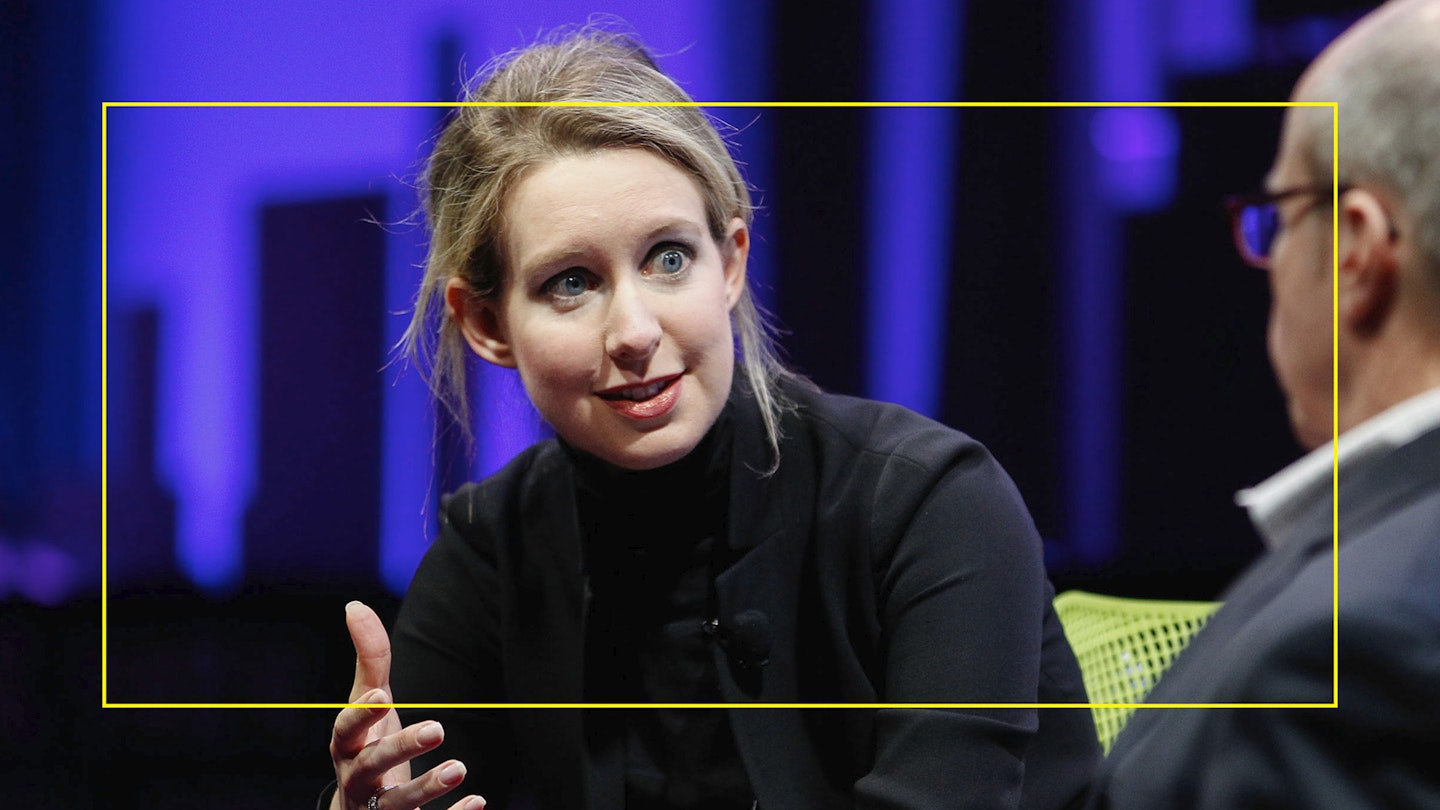As The Dropout finally hits our screens, Polly Dunbar explores how the world’s most powerful men fell for Elizabeth Holmes, and the ultimate scam.
For a decade, she seemed to be the ultimate Millennial success story. Elizabeth Holmes was America’s youngest self-made billionaire, whose flock of high-profile cheerleaders included everyone from Joe Biden to media mogul Rupert Murdoch.
But this month, the 37-year-old, whose company Theranos had promised to revolutionise healthcare, was facing decades in prison after being found guilty of fraud. After a four-month trial, she was convicted of lying to investors on an epic scale about what the technology she invented could do – when, in reality, it didn’t work.
Holmes, a Stanford University drop-out with no medical training, had convinced some of the world’s richest people, including Murdoch and former US secretary of state Henry Kissinger, to invest billions in her blood-testing business. She claimed she had devised a way to test for a range of health conditions, such as cancer and diabetes, using just a tiny pinprick of blood – an idea she said would put an end to painful traditional blood tests. The blood would be put through a machine no bigger than a household printer, called the Edison, which would calculate the results instantly.
It made her a star, not only in Silicon Valley, but the whole of the US, where she appeared on the cover of prestigious magazines in her trademark black polo neck – inspired by her hero, Apple founder Steve Jobs – with heavy make-up framing her big blue eyes. The striking effect was completed by her dazzling self-confidence and unusually deep voice.
‘In the tech world, you’re often investing in a person rather than an idea, and Elizabeth Holmes is a very impressive person,’ says James Clayton, the BBC’s Silicon Valley correspondent, who has covered the story in depth. ‘She’s incredibly bright and articulate. She also comes from a wealthy family, and those connections helped her convince powerful people such as the former [US] secretary of state George Schultz about her idea early on.’
In that sphere, investing in a business because of the other names who’ve already done so is very common, says Clayton. ‘Theranos was being talked about as the new Apple, and credible people, such as Channing Robertson, Holmes’ former professor at Stanford, were involved, so it was very appealing to investors,’ he says. ‘Everyone assumed someone else had done the due diligence on the company.’
Behind the scenes, Holmes knew her technology wasn’t working but she was the embodiment of the ‘fake it till you make it’ ethos, which is virtually a prerequisite for success in Silicon Valley. ‘In that world, if you admit the chances of your idea working are very slim, you’re not going to get investment,’ says Clayton. ‘It means people are always hyping up their product and massaging the figures.’
The culture of secrecy in tech – of protecting your idea so others can’t steal it – also allowed Holmes to avoid revealing too much about the details of her business: for instance, that most of its testing was being done using other companies’ devices.
Her downfall came in 2015, when John Carreyrou, a Wall Street Journal reporter, published an expose of Theranos. The company crumbled, along with Holmes’ carefully crafted public image. Carreyrou has said he believes Holmes has ‘sociopathic tendencies’, adding, ‘She’s someone who got used to telling lies so often, and the lies got so much bigger, that eventually the line between the lies and reality blurred for her.’
What was different about Theranos from other tech firms that overstate their capabilities was that it was diagnosing – often wrongly – real people’s health conditions. Her trial heard that, after a blood test, one patient was told – falsely – that she was miscarrying; another was given a false positive result for HIV.
Now married to Billy Evans, heir to the Evans Hotel Group chain of luxury hotels, and living on a $135m estate in Woodside, California, Holmes gave birth to her first child last year. She was acquitted of four charges relating to defrauding the public, but found guilty of conspiracy to commit fraud against investors and three counts of wire fraud. She faces a maximum of 20 years in prison for each count.
‘It’s definitely a cautionary tale,’ says Clayton. ‘But whether anything in Silicon Valley will really change, I’m sceptical.’
